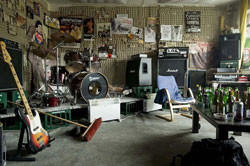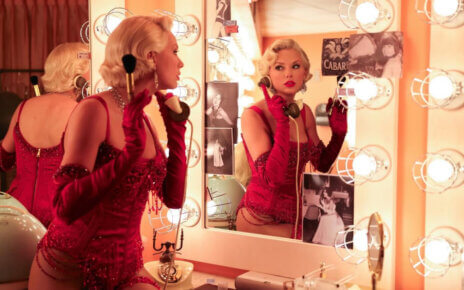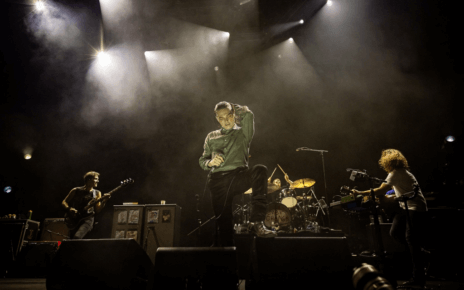It all used to be so simple. A few friends or classmates getting together, sitting around until that one line is uttered, marking four words that would change their lives forever—“Let’s start a band.”
They would then get some cheap instruments—used electric guitars, a primal set of drums and maybe a few amps that were on sale. Then, filing into the house or garage of the kid with the coolest parents, they would start strumming a few chords, possibly some covers of their favorite artists. Posters would hang on the wall of bands like The Beatles or The Rolling Stones, and they would envision themselves playing at MSG or Wembley Stadium for hundreds of thousands of screaming fans.
This is how music used to be made. The Doors, U2, Nirvana—all started in someone’s garage (though U2 technically started in drummer Larry Mullen Jr’s family kitchen) and progressed, together, to make it big and get their songs on a world stage. However, somewhere along the line, the idea of the classic garage band was lost.
“The idea of promoting a brand has been so dumbed down and simplified,” said senior Guy Battaglia, whose band the Flammable Animals started when he got to college and have been featured on Blue Hawk Records. “It is easier to sell ‘Taylor Swift’ than a group.”
With the skyrocketing popularity of rap/hip hop/EDM music over the past two decades, music has strayed away from the atypical band consisting of three or more people, and is now much more focused on individual artists. This is not necessarily a good or bad thing—just a noticeable change. Jonathan McElroy, adjunct professor in the music & theatre arts department, credits the shift to music trends working in a cycle, that cycle now being focused on the individual.
“As with all the arts, there tends to be cycles as to what is popular and what the best way in presenting the work is,” McElroy said. “Relating to music, the trend now is the singer/songwriter, solo hip-hop artists, and other individual performers. Eventually we’ll see the idea of the band becoming popular again as the desired way to present/hear the next style of music.”
In addition, shows such as The Voice and The X Factor that air on primetime television are encouraging the solo musician, even if their only instrument is their voice. Younger generations are being brought up on tons of media promoting the increase of lone artists.
“With younger children and teenagers only seeing and hearing solo performances, [it is] the only aspect of the world of music that is being opened up to them. This will most likely be the only path they pursue,” McElroy said, “because [they are] not being exposed to other avenues within music, such as bands [of any style], concert bands, jazz groups, etc.”
This takes nothing away from the individual artist. Working solo takes just as much practice, discipline and talent as being in a band. However, especially for those artists who do not play an instrument, McElroy credits the media attention and the plethora of childhood distractions for making kids shy away from the effort it takes to pick up a guitar or sit down at the piano. This, in turn, is hurting the idea of playing in a “band.”
Maybe it’s easier going the solo route. No one to fight with, no chance of someone missing a gig or backing out completely—it’s all on you. You make your own success. But there’s something to be said about the bond between bandmates, knowing that you all went through a lot of crap together, whether you make it big or not.
“When I play shows I feel like I am having fun with my friends since my band is all my friends/brothers,” Battaglia said. “People that are solo performers do that on their own and they play with people that are hired, so I feel like they don’t get that fun experience.”
Whether we like it or not, the time of the solo artist is upon us. There will still be bands that fight what has become the norm, but for now, it seems garages will only be meant for cars.
IMAGE TAKEN from pinterest.com



